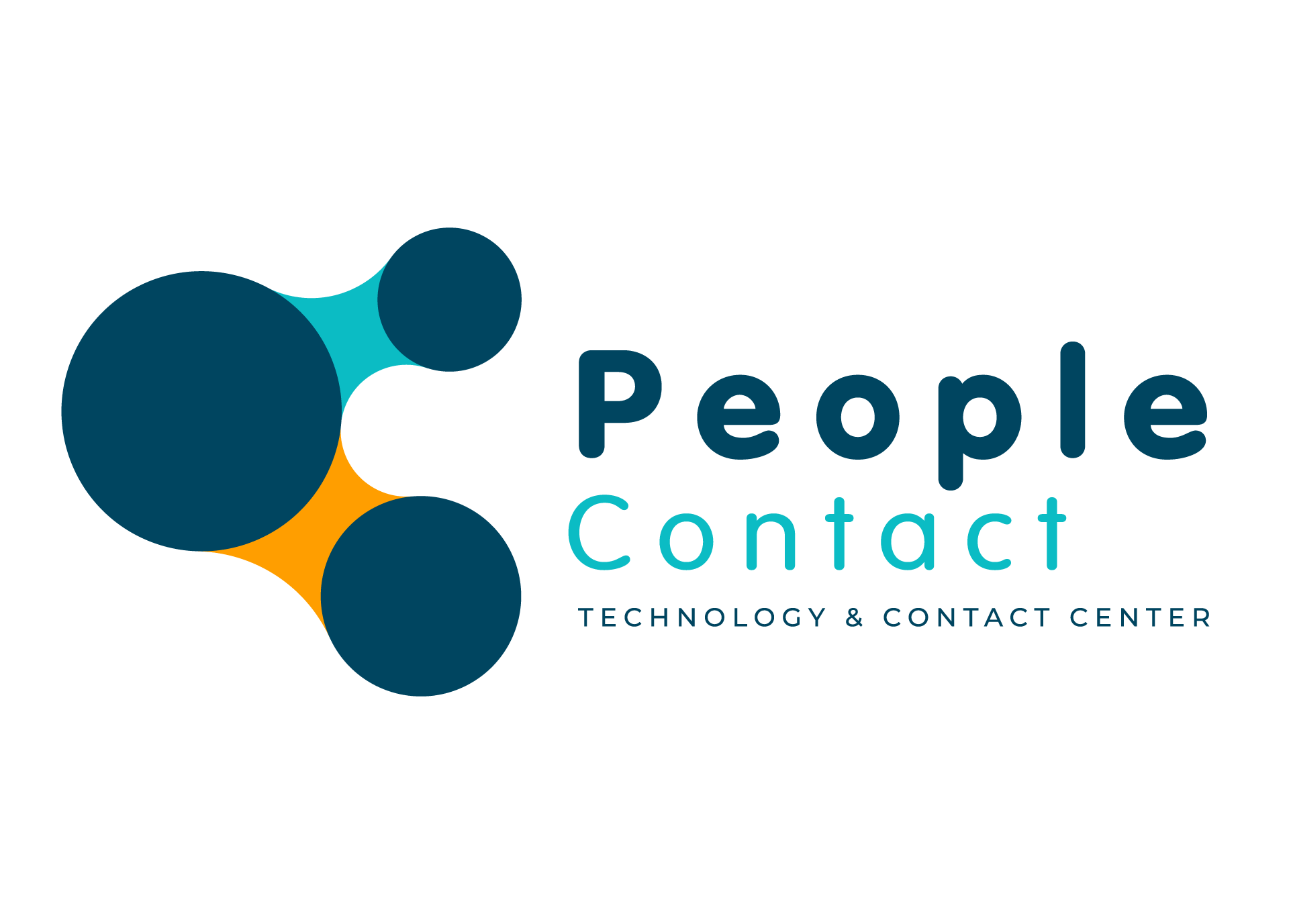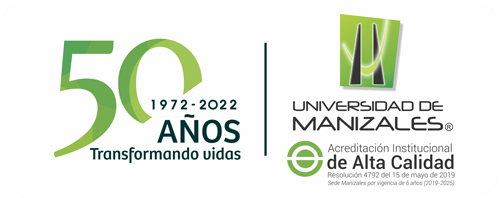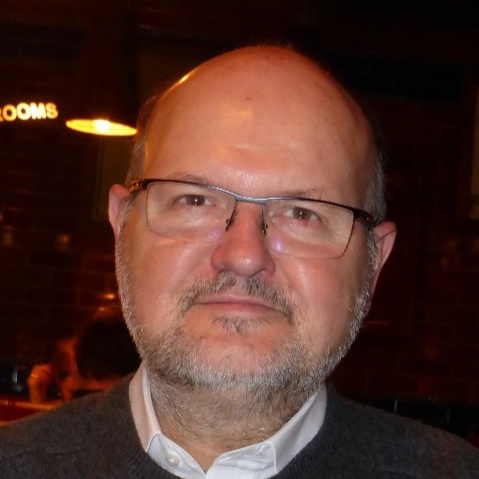
|
Dr. Yves Demazeau
Director of Research at Centre National de la Recherche Scientifique (France)
Ethical MAS of portals and drones for Smart Cities and Territories
Abstract: In this presentation, we will report about our current work regarding multi-agent systems, and in particular the ethical design of such systems. We illustrate our approach on two applications.
To fit with the fast-growing number of autonomous agents and the need of an increased focus on end users, engineering complex multi-agent systems have to evolve towards more scalable and ethical systems. We propose an iterative method of constructing such systems, which is divided into six stages, each of them being independently verified, and the whole system being empirically validated.
The first application deals with cities web site relooking. Such websites are usually designed from a political point of view. We want to automatically revamp such cities website for the benefit of the users, at a given time, and over time. No existing approach currently permits to automatically achieve this task. We illustrate the problem in the context of France, for inhabitants, newcomers, and tourists.
The second application is more prospective and deals with swarms of drones. The state of the art of use of drones in territories deals with one to several drones for data gathering, activity support, surveillance, or alike. We want to address the issues raised when many to swarms of heterogeneous drones are used in the context of crises situations, where these drones need to dynamically interact.
We believe the methodology of designing large-scale agent-based systems we propose can be adopted internationally to enable the acceptance of large-scale systems by a wider public.
Biography: Director of Research at Centre National de la Recherche Scientifique (CNRS) and Visiting Professor at University of Southern Denmark (SDU), Yves Demazeau is EurAI Fellow and Doctor Honoris Causa of SDU. He is one of the founders of the field of Multi-Agent Systems (MAS), one of the ten themes of Artificial Intelligence (AI), in which he has been practicing for 40 years. It is recognized there for his original applications in many fields: autonomous robotics, bio-inspired robotics, computer vision, energy management, financial modeling, geographic information, interactive games, personal assistance, support for artistic creation, telecommunications, natural language processing, web intelligence. His current theoretical research activities in AI focus on three themes: ethical design, observation and evaluation, user-centration. Its current areas of application are also three in number: energy management, reconfiguration of websites, swarms of drones. Some research is carried out in collaboration within LIG, others with SDU (DK-Odense), UM1 (MA-Oujda), and UNICEN (AR-Tandil). He has taught MAS in Europe and South America. He orchestrated the series of PAAMS conferences from 2009 to 2020. He was President of the French Association for Artificial Intelligence (AFIA) from 2011 to 2020 and orchestrated the French Artificial Intelligence Platforms (PFIA) from 2013 to 2021. He is consultant for A2I Systems (DK-Odense).
|
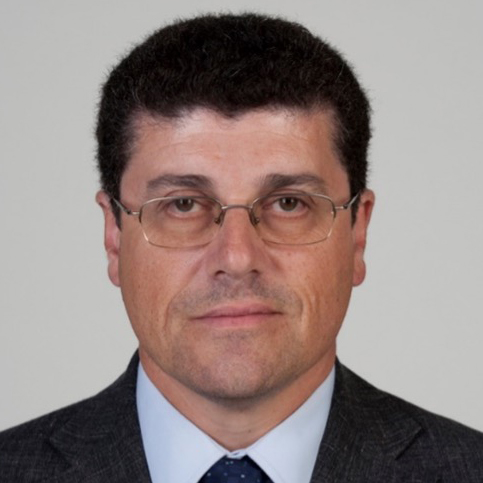
|
Dr. Carlos Fernando da Silva Ramos
Full Professor, Polytechnic of Porto (Portugal)
Artificial Intelligence in the context of Smart Cities and Territories
Abstract: By the year of 2050 it is expected that 68% of world population will reside in urban areas (just 30% in 1950). Better employability and conditions like better health and education are in the reasons for this movement of people in the direction of cities. However, an uncontrolled growth of big cities creates huge problems for the quality of life of the populations. Traffic congestions, waste, pollution, environment degradation, and security issues are among the problems faced today in many big cities. Energy and Mobility represent a big part of the problem.
The main areas involved in Cities cover a diversity of domains in which new infrastructures and intelligence need to be considered, namely in: Government, Houses&Buildings, Urban Planning, Transports&Traffic, Energy, Water, Waste, Environment, Citzenship, Safety, Sales&Retail, Logistics, Health&Well-being, Aging Population, Manufacturing&Industry4.0, Farming&Agriculture, Innovation&Enterpreneurship, Culture&Heritage, Tourism, Education&Research, and Digital Services.
For these areas and domains, different methods and technologies are used, namely: Sensors, Internet of Things (IoT), Big Data, Communications, Positioning, Cloud/Edge, Data Centers&Collection, Cyber-Physical Systems, Cibersecurity, Real-Time Systems, Ambient Intelligence, Machine Learning, Modeling&Simulation, Optimization, AI Planning, Multi-Agent Systems, Renewable Energy, Sustainable Computing, Green Technologies, Robotics&Automation, Image Processing&Computer Vision, User Interfacing & Natural Language, Virtual Reality, and Formal Verification.
In this Keynote Speech we will analyse the use of Artificial Intelligence methods and techniques to handle problems of the Cities and Territories, and how the accelerated evolution of AI impact the opportunities for people to live in these spaces.
Biography: Carlos Ramos got a BSc Degree in Electrical Engineering in 1986, a PhD in Electrical Engineering and Computers in 1993 and the Maturity Habilitation Title level (Agregação) in 2001, all from the University of Porto, Portugal. Carlos Ramos was Assistant and Professor at the University of Porto till 1995, and Coordinator Professor at the Institute of Engineering of the Polytechnic of Porto from 1993 to 2018 when he assumed the position of Main Coordinator Professor. From 2010 to 2018 he was Vice-President of the Polytechnic Porto, being responsible for the areas of Research, Innovation and Internationalization. His R&D is centered on Artificial Intelligence. He has around 500 scientific publications (90 in scientific journals and around 5000 citations, hindex 29), participated in 58 international and national R&D projects, coordinating 25, and supervised 13 PhD works. He was the founder and former Director of GECAD (Research Group on Intelligent Engineering and Computing for Advanced Innovation and Development, UIDP/00760/2020), a R&D unit ranked as Excellent by the Portuguese Science&Technology Foudation. He is member of LASI (Associated Laboratory of Intelligent Systems LA/P/0104/2020), the Portuguese AI Associated Lab. He was the former proposer and is Director of the Master on Artificial Intelligence Engineering of the Institute of Engineering - Polytechnic of Porto.
|
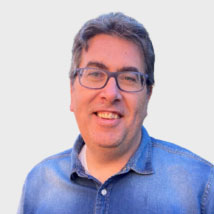
|
Rafael Pastor Vargas
Dean of the Higher Technical School of Computer Engineering
National University of Distance Education (Spain)
How Cybersecurity and Blockchain helps Smart Cities to be Secure and Reliable
Abstract: The development of Smart Cities in different areas has generated new challenges in information security management, especially in areas where security is essential. These areas are associated with what are called critical infrastructures. They are usually associated with the distribution of primary elements (supply chain) for the operation of a city: energy, transportation/mobility, water or food. Blockchain makes it possible to add tracking and reliability capacity to these distribution chains, which, combined with different mechanisms for securitizing these infrastructures, makes it possible to have a secure and reliable city in terms of information management. In this Keynote Speech, we will see how combining cybersecurity elements and techniques with Blockchain redefines the reliability and trustworthiness of Smart Cities. The perceived security of Smart Cities allows citizens to trust the solutions developed to optimize city operation processes that otherwise would not be possible to develop. The Keynote Speech will show the heterogeneity of Smart Cities solutions and applied technologies and how this forces the developers of these solutions to pay special attention to the securitization of each element and the generated/managed information, which will be securely stored in the most relevant and efficient Blockchain.
Biography: Rafael Pastor is Dean of the Escuela Tecnica Superior de Ingeniería Informática. He has held the position of Director of Technological Innovation of the UNED (in charge of the development of the aLF learning platform and technological innovation processes) for five years (2004-2009) and also Director of the Center for Innovation and Technological Development of the UNED in the period 2009-2011, as responsible for the management of the virtual campus of the UNED and the development of the aLF learning platform. He is currently the director of the University Expert in Blockchain at UNED. Additionally, he has also been the Coordinator of the official University Master’s Degree in Engineering and Data Science (2019-2021) and professor of that master’s degree. Furthermore, he is part of the team of professors of the official University Master’s Degree in Cybersecurity at UNED. In the field of research and transfer, his work focuses on Cybersecurity and the different application fields, specifically Blockchain applications.
|




